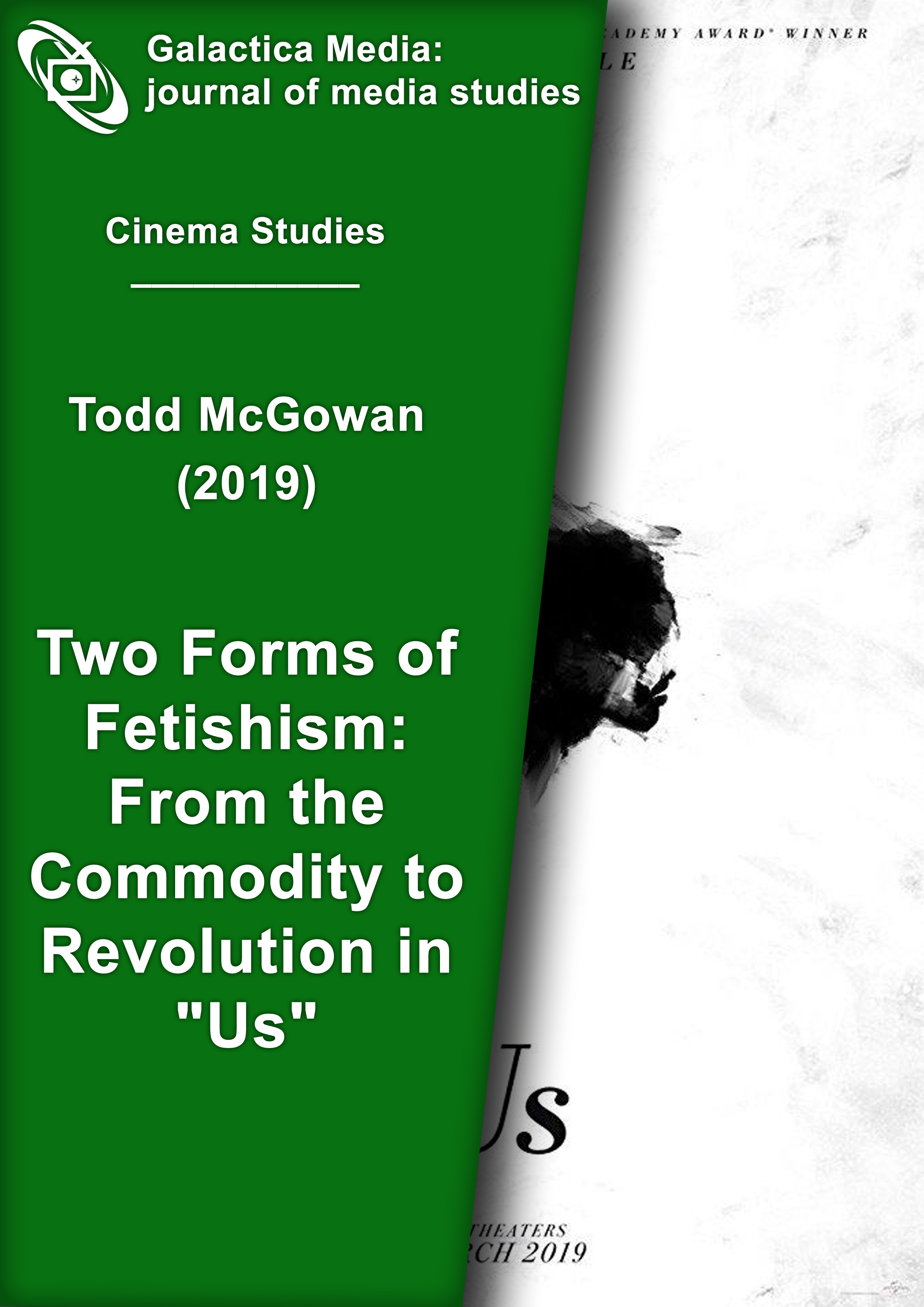Abstract
This essay contends that Jordan Peele’s Us (2019) connects the psychic operation of fetishistic disavowal to the existence of class division. By exploring the role that fetishistic disavowal plays in commodity fetishism, the film makes clear how the psychic disposition of the ruling class perpetuates the suffering of an underclass that lives beneath the surface. Us reveals the connection between two forms of fetishism just as it reveals the inseparability of the psyche from politics. What separates Us from the typical Marxist critique of bourgeois individualism is the connection that it establishes between the psychic disposition of the individual and the social situation in which the individual exists. Without the necessary psychic response to the situation, class inequality would quickly become unsustainable. Through the nature of the revolt the film depicts, Peele attempts to illustrate how the psychic disorders of individuals ensconced within capitalist society make possible the sustained existence of its inegalitarian structure.
References
Abad-Santos, A., & Romano, A. (2019, April 2). Us’s Jason/Pluto Theory, Explained and Debunked. Vox. Retrieved from https://www.vox.com/2019/4/2/18290380/us-movie-jason-pluto-tether-theory-explained-true-false
Alter, R. (2019, March 26). Unpacking Reddit’s Wildest Theory About Us. Vulture. Retrieved from https://www.vulture.com/2019/03/us-reddit-theory-jason-pluto.html
Freud, S. (1961). Fetishism. In J. Strachey (Ed.), The Standard Edition of the Complete Psychological Works of Sigmund Freud, vol. 21 (J. Riviere, Trans.). London: Hogarth Press.
Lacan, J. (1978). The Seminar of Jacques Lacan, Book XI, The Four Fundamental Concepts of Psychoanalysis. (A. Sheridan, Trans.) New York: Norton.
Levinas, E. (1999). “Philosophy and Transcendence. In Alterity and Transcendence (M. B. Smith, Trans.). New York: Columbia University Press.
Marx, K. (1970). A Contribution to the Critique of Political Economy. (S. W. Ryazanskaya, Trans.) New York: International Publishers.
Marx, K. (1976). Capital: A Critique of Political Economy, Volume I. (B. Fowkes, Trans.) New York: Penguin.
Marx, K. (1993). Grundrisse. (M. Nicolaus, Trans.) New York: Penguin.
Marx, K., & Engels, F. (1975). The Holy Family, or Critique of Critical Criticism. Moscow: Progress Publishers.

This work is licensed under a Creative Commons Attribution-NonCommercial-NoDerivatives 4.0 International License.

